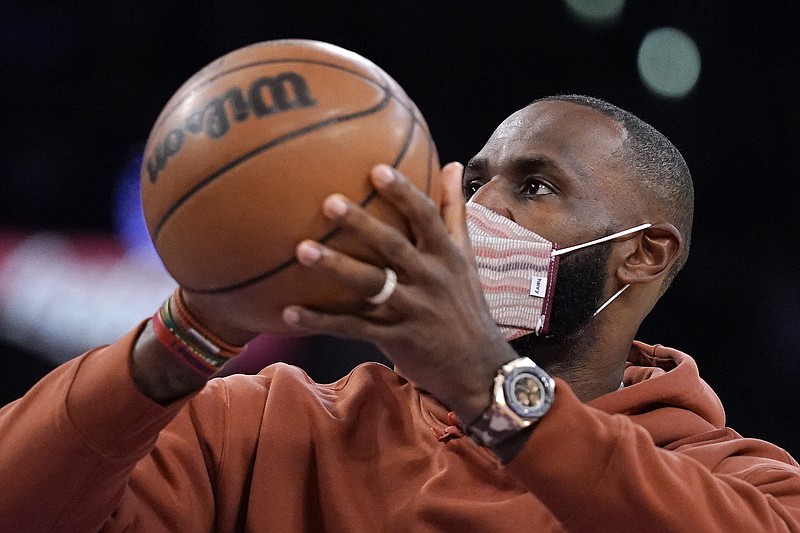"Where have you gone Joe DiMaggio / our nation turns its lonely eyes to you / woo, woo, woo!" - Simon & Garfunkel.
In "Mrs. Robinson," Paul Simon and Art Garfunkel do something that borders on the unthinkable in an era where celebrity sports heroes are ducking as fast as they can into the hermitage of radical individualism.
As the Vietnam War was raging abroad and civil rights and anti-war protests were challenging the establishment at home, the folk duo name-dropped a Major League baseball player as someone assumed to have sufficient moral integrity to compel an entire nation to "turn its lonely eyes" to him.
Why Joe DiMaggio and not Josh Gibson or Mickey Mantle? Those names don't fit the song's rhyme scheme and Jackie Robinson would've been too awkward of an echo in a song called "Mrs. Robinson."
But the folk duo are nothing if not realistic about the inevitability of disappointment that befalls anyone who puts their hope in even the most revered cultural hero: "What's that you say, Mrs. Robinson / Joltin' Joe has left and gone away / hey, hey, hey."
The existential bleakness of the song is offset by a jangly, but melancholy hope that transcends the moment.
Designated heroes were once assumed to possess a certain amount of moral seriousness. That expectation is almost entirely absent in this era where dodging any sense of collective responsibility is the de facto position of too many athletes playing at the highest levels of their respective sports.
These days, too many Americans are adept at treating those who were considered heroes a year ago like false prophets and scam artists. Ask nurses and doctors, the heroes of last year's pandemic when there were no vaccines, what they think of their sudden loss of status this year.
Their "sin" is that they're part of a medical establishment that dares to champion a vaccine protocol to curb the spread of a highly contagious disease that has killed 701,000 Americans to date. Because they dare to believe in the efficacy of science, many health care workers have to deal with threats from unhinged people in their communities who believe their "freedom" to suffer in ignorance trumps a society's right to protect itself against a plague.
Vaccine hesitancy continues to kill one in 500 Americans. Unvaccinated Americans are 11 times more likely to die from COVID than those they sneer at for being "sheep-like" for lining up "to be jabbed."
Recently, LeBron James, the biggest name in the NBA and one of the biggest names in franchise sports today, pretended that all of his prior activism on and off the court doesn't mean he would ever dream of imposing his opinions on anyone else.
After sheepishly admitting to being vaccinated, he said choosing to receive a life-saving jab is a personal matter left to players and ordinary folks alike.
This reluctance to extend one's own logic to others in one's profession or to the general public gives cover to those who hold dubious and dangerous beliefs.
What's doubly mystifying is why someone like LeBron James, who has spent years building a huge social media presence along with moral capital as an outspoken advocate of urban education and police accountability, would choose to deny he's a cultural influencer when it comes to the issue of vaccination.
Not every NBA player is reluctant to expend moral capital to convince colleagues to do the right thing. The Boston Celtics' Enes Kanter and Grant Williams are among the most outspoken among current players in a league that can happily boast that 90% of its 450-player roster are vaccinated.
Kareem Abdul-Jabbar, a heroic figure from the Lakers' past - and the NBA's golden age - minces no words when it comes to the silence of towering figures like LeBron James who knows better, yet refuses to speak out.
"They are failing to live up to the responsibilities that come with celebrity," Jabbar told Rolling Stone. "Athletes are under no obligation to be spokespersons for the government, but this is a matter of public health."
Jabbar leaves no wiggle room for his fellow Laker: "By not encouraging their people to get the vaccine, they're contributing to these deaths. I'm also concerned about how this perpetuates the stereotype of dumb jocks who are unable to look at verified scientific evidence and reach a rational conclusion."
Because COVID is the third leading killer of Black folks in America, silence or worse - acquiescence to mumbo-jumbo uttered by miseducated celebrities on social media - is unconscionable.
Still, it probably is a bad idea to wait around for validation from any celebrity, many of whom are constrained by whatever they consider to be in their self interest at a given moment.
The most disappointing element of all of this is the narcissism of the anti-vaxx "give me liberty even if it gives everyone else death" crowd. If COVID could be limited to those who are willing to die to maintain their "bodily integrity," I honestly wouldn't mind as much, though it would be a civic disaster.
From a Darwinian perspective, it would cull the herd of folks who don't quite understand the importance of communal cooperation. But COVID is highly contagious and claims those who are immune-compromised or too young to get a vaccine. Being a vaccine skeptic doesn't happen in a vacuum. It reverberates throughout communities. It is ultimately an anti-social act against the entire society and is the epitome of libertarian selfishness.
Ironically, the jersey that LeBron James wore when he led his then-teammates on the Cleveland Cavaliers to protest police brutality should be brought back into circulation. Those "I can't breathe" jerseys can be strategically repurposed for another crisis that needs to be taken even more seriously. And we wouldn't even have to redesign them.
The Pittsburgh Post-Gazette
